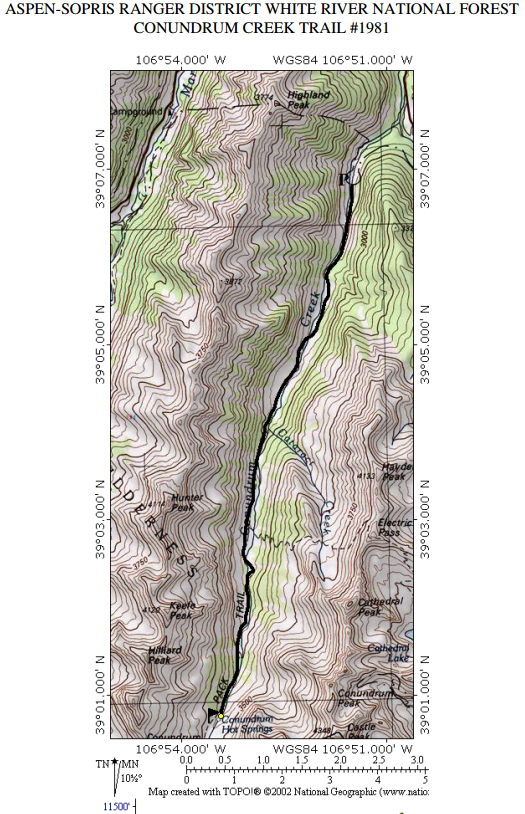
Hikers love to explore the Maroon Bells-Snowmass Wilderness. But they love it a little too much. The Forest Service's draft plan to limit the number of campers in the area is now up for final comment -- and what they're hearing so far is mostly in favor of more restrictions in the area.
Of particular concern: Conundrum Hot Springs in the Elk Range between Aspen and Crested Butte, which can see upwards of 300 campers on a summer night. Those kinds of numbers mean permanent damage to the landscape, piles of human waste, and hundreds of pounds of trash left behind by campers.
US Forest Service Aspen-Sopris District Ranger Karen Schroyer says decades of data show there are too many visitors, and the Service is hearing “more and more feedback the last couple of years from our public, who have asked us to make some management changes up there. You know, people are frustrated with what they're seeing."
If approved, the draft decision, known as Alternative 2, would start with a online reservation system to cap the number of overnight campers at the hot springs and along Conundrum Creek. That could be in place by the summer of 2018. The Forest Service says it will likely charge a fee for permits.

Once Conundrum management is in place, the draft calls for expanding the reservation system to two other popular areas. The first expansion would be the Four Pass Loop, a 28-mile backpacking route that includes Crater Lake, Maroon Lake, Snowmass Lake, and the North Fork, East Fork and Upper Snowmass zones. The final phase would include the Capital Lake and Lower Capital zones.
An overnight permit system has been in place for the whole wilderness – but not specific areas – for a decade. The Forest Service used that process to track visitation. Between 2007 and 2015, overnight permits to camp on the area’s 10 most popular trail increased 115 percent.
Each summer, rangers also tracked human impacts in the wilderness. They have found campsites have hardened against vegetation around water sources. Fire rings have popped up where they shouldn’t and trees have been stripped for fuel.
“The biggest impact we’ve seen is human waste. We have a real human waste problem in the Maroon Bells-Snowmass Wilderness,” says Kate Jerman, a public affairs officer with the White River National Forest.
That problem could be seen and smelled at trailhead below Conundrum Hot Springs on Wednesday. Leave No Trace, a conservation ethics group, led a cleanup in the area. Over the course of the afternoon, the crew managed to fill a trash bag with human waste.
“You can tell these volunteers really care about this place,” said Aaron Hussmann, a trainer with Leave No Trace. “They got into it and cleaned it all up.”
In the next step of the process, people who had participated in the previous formal comment periods have 45 days to register any objections to the plan. All the documents related to the draft decision, as well as instructions for commenting, are posted on the White River National Forest website. A final decision on the plan would come around the end of July. Implementation would likely begin next summer.
CPR's Michael Sakas, Sam Brasch and Hart Van Denburg contributed to this report.
Editor's Note: This story has been updated to clarify language surrounding the definition of the draft decision and to refine who can participate in the next 45 day comment window.







